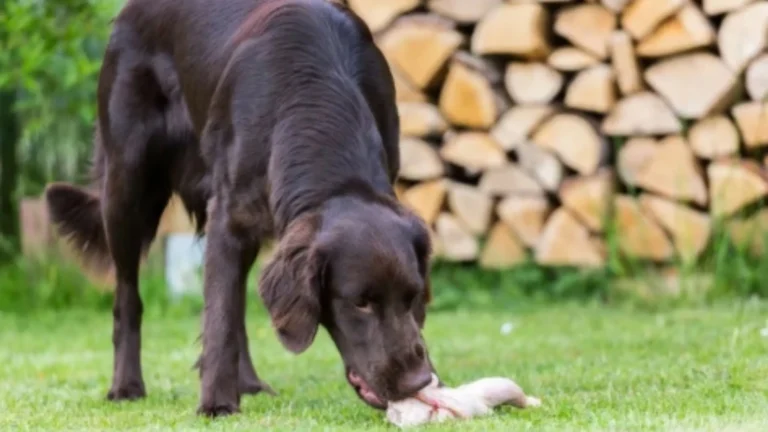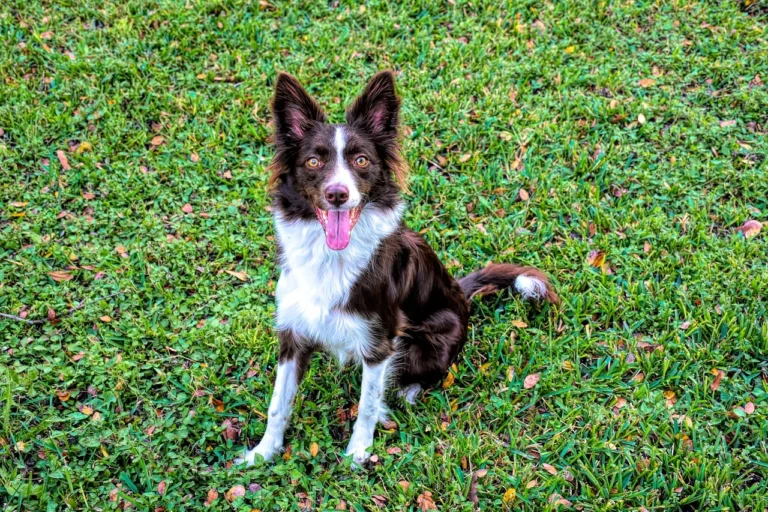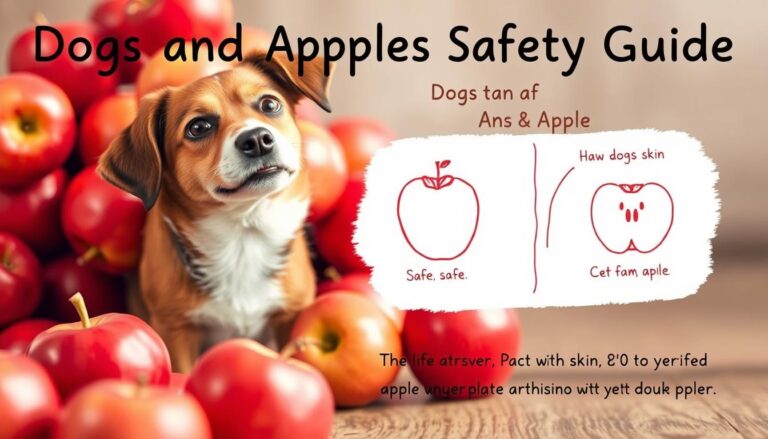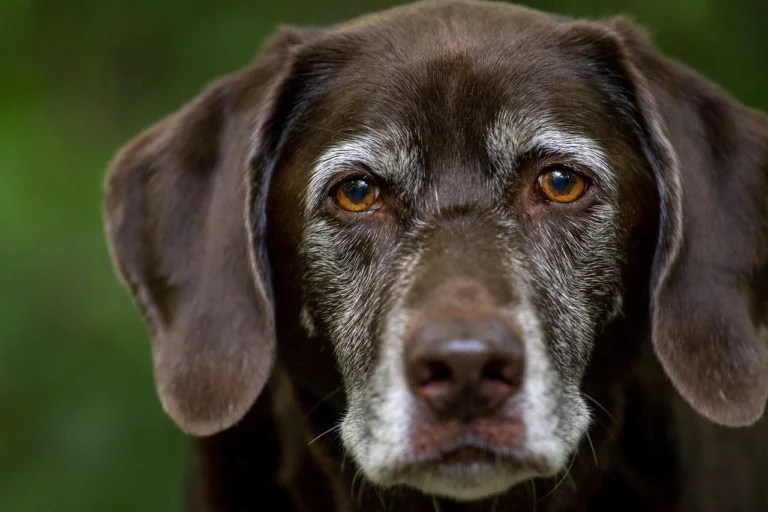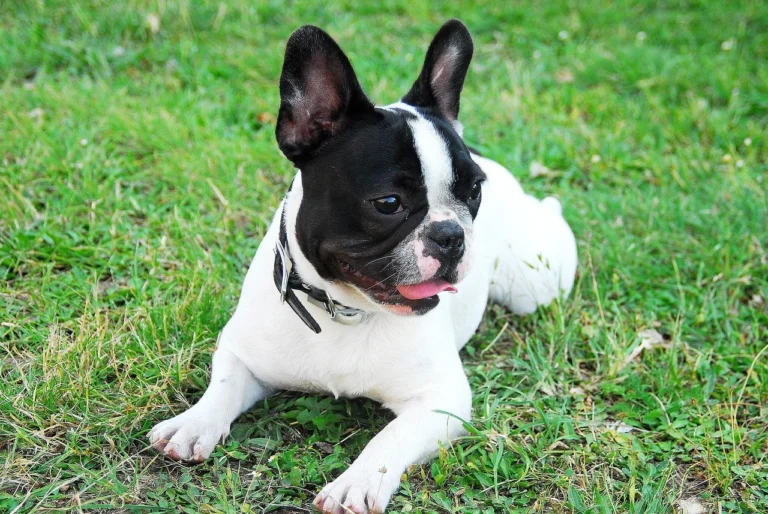Is Bacon Bad for Dogs? What Owners Should Know
Every dog owner has felt that moment when their puppy looks up with those big eyes. They want a piece of your bacon. It’s hard to resist giving in to their cute faces. But before you give them bacon, you should know if it’s safe for them.
Bacon might look like a tasty treat, but it can be harmful to dogs. The simple answer is no, dogs should not eat bacon. It’s important to choose the right food for your dog’s health.
Knowing the dangers of bacon is key for pet owners. Bacon has too much salt and can cause serious stomach problems. What seems like a small treat can actually harm your pet.
This guide will help you understand the risks of bacon for dogs. We’ll talk about why bacon is dangerous and offer safer options. This way, you can keep your dog healthy and happy.
Table of Contents
Understanding Dogs and Bacon: A Basic Overview
Dogs have a special bond with food, thanks to their wild ancestors. Bacon and dogs have a complex mix of instinct and nutrition. Pet owners need to grasp this.
The smell and taste of bacon are very tempting for dogs. It’s not just about taste. It’s tied to their history of hunting and finding food.
Why Dogs Crave Bacon
Dogs love bacon for more than just hunger. They are naturally drawn to foods high in protein and fat. Eating bacon brings back memories of their ancestors’ hunting days.
- Dogs have a strong sense of smell that finds bacon irresistible
- The fat in bacon is like the fat in prey animals
- The protein scent reminds them of hunting
The Primal Connection to Meat
Wild canines ate whole prey animals, which were full of fat and protein. Today’s dogs still prefer such foods. Bacon is a natural fit for them.
Natural Canine Dietary Needs
Even though dogs enjoy bacon, their diet needs are different from ours. Responsible pet owners must balance treats with proper nutrition. A diet that meets their needs is key for their health.
Knowing your dog’s dietary instincts helps you make better food choices.
The Hidden Dangers of Raw Bacon for Dogs
Raw bacon is a big risk for your dog. It’s not just about what they eat. Uncooked pork can harbor harmful bacteria that harm your dog’s health.
Bacon can be toxic to dogs, especially when it’s raw. The dangers include:
- Bacterial infections like Salmonella
- Potential parasitic contamination
- Risk of intestinal blockages
- Severe gastrointestinal complications
Raw pork has tiny threats that can hurt your dog’s stomach. Pathogens like E. coli and Salmonella grow fast in uncooked meat. This is a big risk for your pet.
| Bacterial Risk | Potential Symptoms | Severity |
|---|---|---|
| Salmonella | Vomiting, Diarrhea | High |
| E. coli | Dehydration, Weakness | Critical |
| Parasitic Infections | Digestive Distress | Moderate to Severe |
Vets say to avoid raw bacon at all costs. Even cooked bacon is risky for dogs because of its salt and fat.
Is Bacon Bad for Dogs: Key Health Concerns
Pet owners need to know the dangers of bacon for dogs. Bacon can harm your dog’s health in many ways. It’s not just about what they eat.
Bacon is a big problem for dogs. It has too much fat and is processed. This can lead to serious health issues.
Pancreatitis: A Serious Threat
Pancreatitis is a big risk from bacon. It happens when the pancreas gets too inflamed from fat. Dogs eating bacon are at high risk.
- Symptoms of pancreatitis include:
- Severe abdominal pain
- Persistent vomiting
- Dramatic loss of appetite
- Extreme lethargy
Bacterial Contamination Risks
Raw or undercooked bacon can harm your dog. Salmonella and E. coli are big dangers. They can hurt your dog’s stomach and immune system.
Digestive System Complications
Dogs can’t handle bacon’s fat and salt well. Bacon can cause problems like:
- Intense gastrointestinal distress
- Chronic diarrhea
- Potential long-term digestive tract damage
Knowing these risks helps you choose better food for your dog. It keeps them healthy for a long time.
Salt Content and Preservatives in Bacon
When thinking about bacon and dogs, the salt and preservatives are key concerns. Bacon has a lot of sodium, which can harm your dog. It might even cause serious health issues.
The salt in bacon is a big risk for dogs. One slice has 190-250 milligrams of sodium. This is way too much for a dog to handle. It can lead to:
- Severe dehydration
- Electrolyte imbalances
- Potential sodium ion poisoning
- Kidney stress
Preservatives in bacon are also a worry. Nitrates and nitrites can harm your pet’s health over time.
| Preservative | Potential Dog Health Impact |
|---|---|
| Nitrates | Potential cancer risk |
| Nitrites | Digestive system disruption |
| Excessive Sodium | Cardiovascular strain |
What might seem like a safe treat could actually hurt your dog. Bacon’s high salt and preservatives make it a bad choice for dogs.
The Impact of Bacon Fat on Canine Health
Understanding the health risks of bacon for dogs is key for pet owners. Bacon’s high fat can harm your dog’s health, leading to serious problems.
Bacon’s fat is a big worry for dogs. Dogs handle fat differently than people, making bacon bad for them.
Short-term Effects of Bacon Consumption
Right after eating bacon, dogs might feel:
- Digestive upset
- Potential stomach discomfort
- Increased risk of vomiting
- Potential diarrhea
Long-term Health Consequences
Eating bacon regularly can cause long-term health issues. The dangers of bacon for dogs go beyond stomach problems.
| Health Concern | Potential Impact |
|---|---|
| Obesity | High calorie content leads to weight gain |
| Pancreatitis | Inflammation of pancreas due to high fat |
| Heart Disease | Increased cholesterol and cardiovascular stress |
Weight Management Concerns
Bacon’s calories can cause dogs to gain weight fast. One slice of bacon contains approximately 43 calories, a lot for small dogs.
Pet owners should choose lean proteins and watch treats to keep their dogs healthy and at a good weight.
Safe Alternatives to Bacon for Dogs

Thinking about whether dogs can eat bacon? It’s key to find healthier treats that dogs love. Bacon isn’t good for dogs, but there are many safe options to keep them happy and healthy.
Lean proteins are great bacon substitutes. Here are some good choices:
- Cooked chicken breast (unseasoned)
- Boiled turkey
- Lean beef cuts
- Fish like salmon or sardines
Commercial dog treats are also a good choice. They offer special nutrition without bacon’s dangers. Look for treats that are:
- Low in fat
- Made with natural ingredients
- Veterinarian-approved
- Specifically formulated for dogs
Homemade treats are another great option. Try making simple treats with:
- Baked sweet potato chunks
- Frozen blueberry treats
- Carrot sticks
- Apple slices (without seeds)
Always introduce new treats slowly and in small amounts. Talk to your vet to make sure these treats are right for your dog.
Proper Portion Control and Frequency
Feeding dogs bacon needs careful thought about portion size and how often to give it. It’s not good to make bacon a regular part of their diet. Their health is best kept with a balanced diet and few treats from humans.
When it comes to bacon and dogs, it’s all about moderation. Dogs digest food differently than humans, making bacon a risky treat.
Occasional Treats vs Regular Feeding
Vets have some rules for giving dogs bacon:
- Only give bacon on rare, special occasions
- Don’t give more than one small piece a month
- Cook bacon well to avoid bacterial risks
- Take off all fat before giving it to your dog
Size-Based Serving Guidelines
Your dog’s size matters for treat portions. Here’s a rule for bacon:
- Small dogs (under 20 lbs): No more than 1/4 inch piece
- Medium dogs (20-50 lbs): No more than 1/2 inch piece
- Large dogs (over 50 lbs): No more than 1 inch piece
Keep in mind, these are for extremely rare times. The dangers of bacon usually don’t make it worth the risk for your dog.
Signs of Bacon-Related Health Issues in Dogs
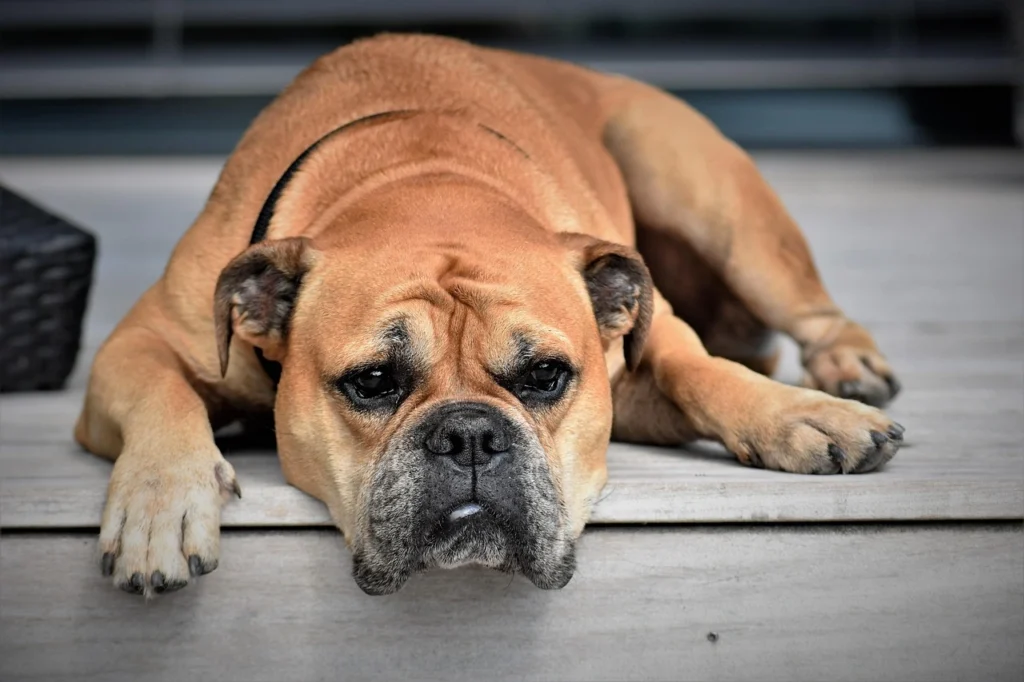
It’s important for pet owners to know the dangers of bacon for dogs. Bacon can cause serious health problems in dogs. Look out for warning signs if your dog eats bacon.
Here are key health signs to watch for:
- Sudden abdominal pain or tenderness
- Persistent vomiting
- Dramatic loss of appetite
- Unusual lethargy or weakness
- Diarrhea with potential blood traces
Pancreatitis is a serious issue from eating bacon. It can happen fast and be very dangerous. Bacon’s high fat content can hurt your dog’s pancreas, leading to digestive problems.
| Symptom | Potential Severity | Recommended Action |
|---|---|---|
| Severe Vomiting | High Risk | Immediate Veterinary Consultation |
| Continuous Abdominal Pain | Critical | Emergency Medical Evaluation |
| Dehydration Signs | Moderate to High | Urgent Fluid Replacement |
Vets say keep a close eye on your dog after bacon. Bacon toxicity can get worse fast. If you see many symptoms or think your dog is really sick, call your vet right away.
Conclusion
When thinking about bacon and dogs, it’s clear we should be careful. Is bacon bad for dogs? Yes, research shows it can be very risky. Dogs have special needs that go beyond what we eat.
Vets say to stick with dog food made just for them, not human treats like bacon. Even if dogs love bacon, the dangers are too great. These dangers include pancreatitis, stomach problems, and weight gain. It’s better to choose healthy, dog-safe foods.
As a dog owner, you have to make good food choices for your pet. Talking to your vet about safe treats is key. This way, your dog stays healthy and happy.
Choosing your dog’s health over quick treats is what love is about. Being informed helps you give your dog the best diet. This way, they can live their best life.


